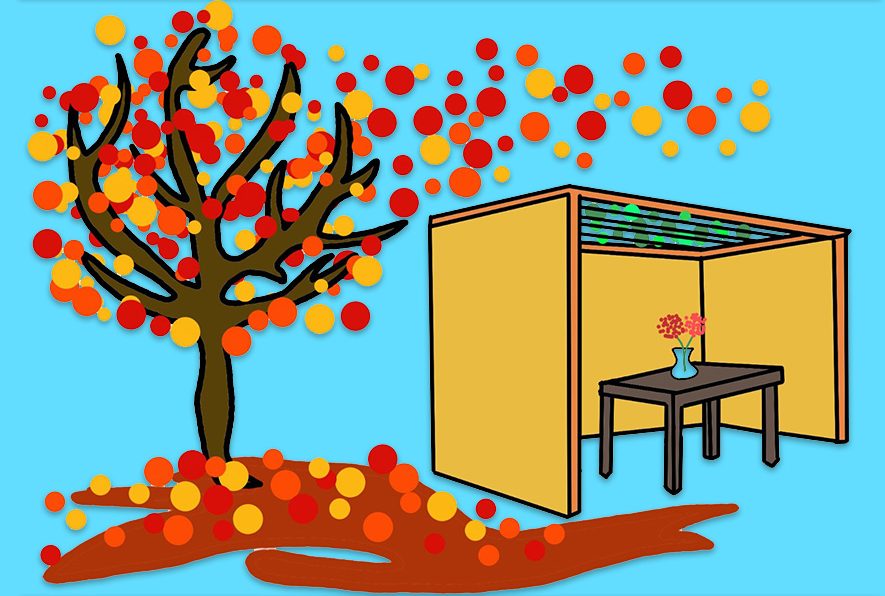Sukkot: When bad weather makes a point
Sukkot begins tonight at 6:08 p.m. School will resume October 20. Chag Sameach from the Boiling Point!
October 9, 2022
Coming shortly after Rosh Hashanah and Yom Kippur, Sukkot is a time that, if one is not careful, could seem simply like a fall break. Because Bnei Yisrael built huts in the desert after they were freed from Egypt, it is unclear why Sukkot is not celebrated in the spring, right after Pesach. As it says in Vayikra (Leviticus) 23:43:
Lema’an yadu doroteichem ki basukkot hoshavti et bnei Yisrael behotzi’i otam me’eretz Mitzrayim, ani Adonai Eloheichem.
“In order that future generations may know that I made the Israelite people live in booths when I brought them out of the land of Egypt—I, your God.”
This pasuk (verse) explains our obligation to build sukkot in commemoration of our Exodus, and reiterates that Hashem is our God. Out in the desert, we lived in portable booths, sukkot –so why not build our temporary replications of them in late spring?
While there are many possible explanations, I connected to the view of Rabbi Jacob Ben Asher, a 13th-century German scholar who was also known as the Baal Haturim. The Baal Haturim asserts that we do this mitzvah simply because we are commanded to, rather than for leisure or enjoyment (even though it commands enjoyment).
To a non-Jew, he explains, building huts in hot weather would not seem special. Wondering why we are building in fall, such a person would learn that Jews follow God’s commandments rather than just adapting to weather shifts. Celebrating Sukkot in fall, he says, makes this intention more plain.
He concludes that because the mitzvah of building a sukkah should be done wholeheartedly and with genuine intent, it is especially important to step outside our comfort zones by residing in a sukkah in colder weather. This exercise of discipline shows our gratitude to Hashem for taking us out of Egypt.
So while Sukkot may be a week for feasting, family time and pretty decorations, we must also use this “break” to push us out of our comfort zones and prove our commitment to Hashem.













